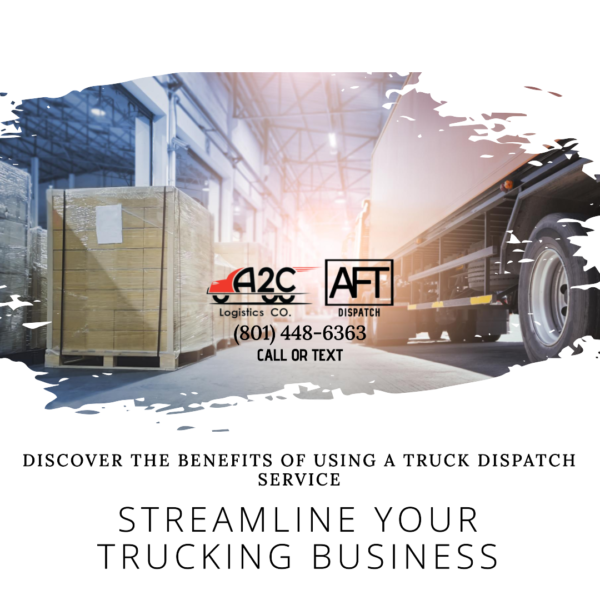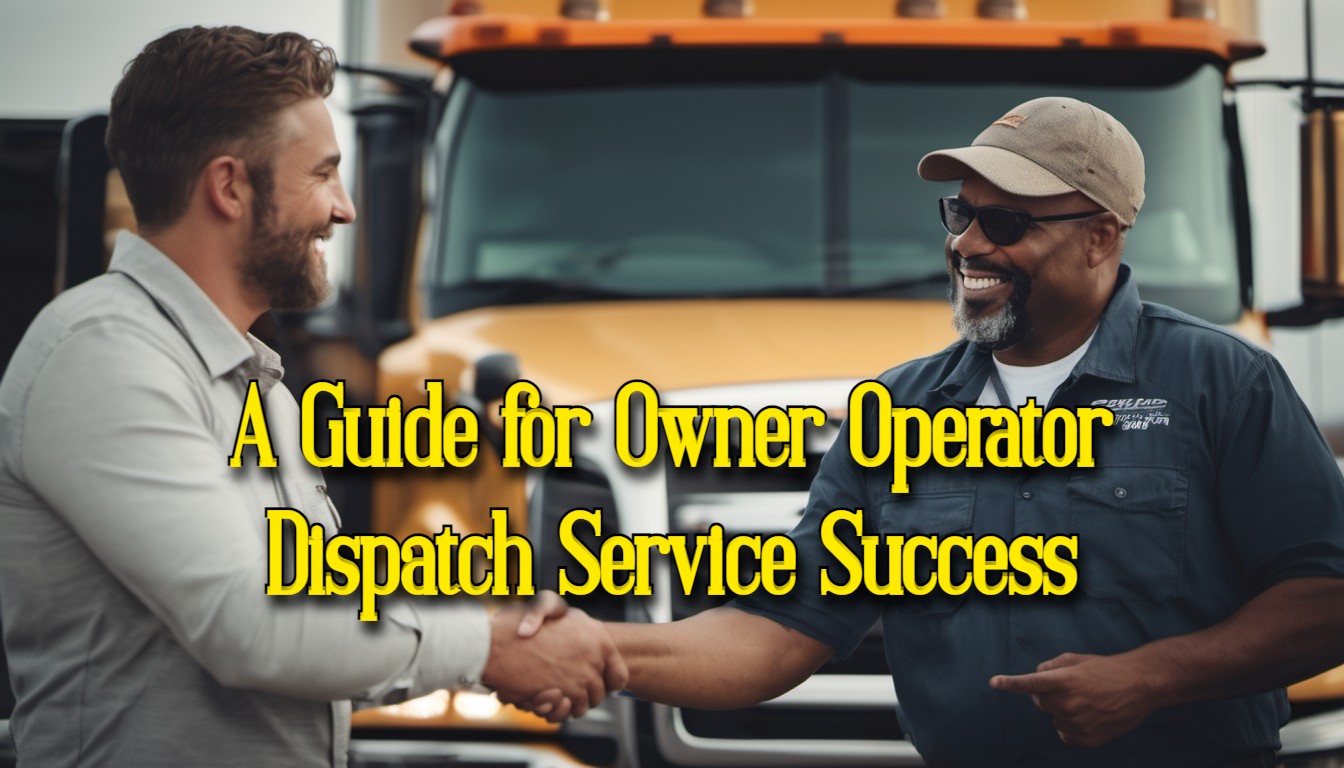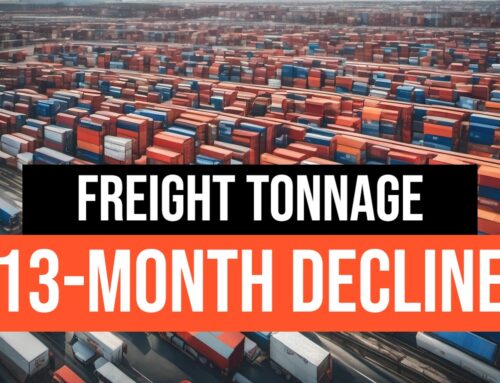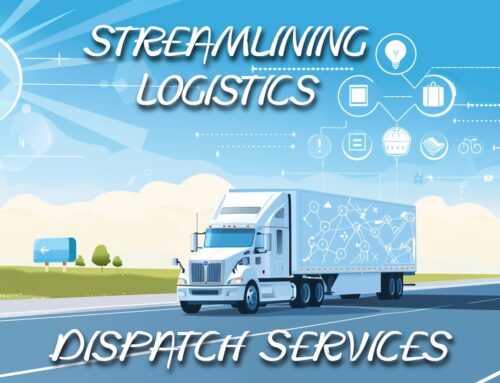Table of Contents
Are you an owner operator or a small trucking company looking to streamline your dispatch operations and increase profitability? Navigating the complexities of load management and route optimization can be challenging, but with the right strategies, you can unlock the full potential of your trucking business. In this guide, we’ll explore practical tips and techniques for owner operator dispatch service success and help you overcome common hurdles.
Understanding Owner Operator Challenges

Owner operators and small trucking companies face a unique set of challenges when it comes to dispatching and load management. Unlike larger companies with dedicated dispatch teams, the burden of finding profitable loads, planning efficient routes, and managing complex paperwork often falls on the owner operator themselves. This can lead to several significant drawbacks:
- Time-Consuming Load Searches: Spending countless hours searching online load boards and contacting brokers can be a major drain on productivity. This valuable time could be better spent on core aspects of the business, like driving and maintaining the truck.
- Inefficient Route Planning: Without the expertise and resources of a dedicated dispatcher, owner operators may struggle to optimize their routes. Suboptimal routing, with excessive backtracking or inefficient stops, can result in increased fuel costs, missed deadlines, and ultimately, a negative impact on the bottom line.
- Administrative Burden: The administrative tasks associated with running a trucking business, such as paperwork, invoicing, and billing, can be overwhelming and time-consuming. Juggling these responsibilities alongside driving duties can be a significant distraction and hinder the ability to focus on growth and expansion.
Leverage the Power of Online Load Boards
In today’s digital age, the use of online load boards and freight matching platforms has revolutionized the way owner operators and small trucking companies find and secure profitable loads. These platforms offer a vast array of opportunities to connect with shippers and brokers, but to truly maximize their potential, it’s essential to understand how to utilize them effectively.
- Choose the Right Platforms: With numerous load boards available, it’s crucial to select the ones that best suit your needs and preferences. Look for platforms that cater to your specific niche and geographical area. Consider factors such as user interface, load volume, and subscription fees when making your decision.
- Set Detailed Preferences: Most load boards allow you to customize your search criteria based on factors like load type, equipment type, origin, and destination. Take advantage of these features to narrow down your search and focus on the loads that align with your capabilities and preferences.
- Optimize Your Profile: Your profile on the load board serves as your digital resume. Make sure it accurately reflects your services, equipment, and availability. Include relevant details such as insurance information, certifications, and any specialized services you offer. A well-optimized profile can help you stand out to potential customers and increase your chances of securing quality loads.
- Regularly Check for Updates: Load board listings are dynamic and can change rapidly throughout the day. Make it a habit to check for updates frequently, especially during peak load times. Set aside dedicated time each day to review new listings, respond to inquiries, and negotiate rates. Being proactive and responsive can give you a competitive edge in the marketplace.
- Utilize Advanced Features: Many load boards offer advanced features such as load alerts, saved searches, and bid boards. Take advantage of these tools to streamline your workflow and stay ahead of the competition. Load alerts, in particular, can be a valuable resource for receiving real-time notifications about available loads that match your criteria.
- Establish Relationships: While online load boards provide a convenient way to find loads, building strong relationships with shippers and brokers can lead to long-term partnerships and repeat business. Take the time to communicate professionally, deliver exceptional service, and follow up with clients after completing a job. Building trust and reliability can open doors to lucrative opportunities in the future.
By following these strategies and harnessing the full potential of online load boards, you can streamline your load search process, increase your efficiency, and ultimately, maximize your profitability as an owner operator or small trucking company. Remember, success in the trucking industry is often the result of strategic planning, consistent effort, and a commitment to delivering exceptional service to your customers.
Invest in Route Optimization Tools
 Consider investing in route optimization software that can help you plan more efficient routes, minimize deadhead miles, and maximize your earning potential. Route optimization tools are essential for owner operators and small trucking companies looking to enhance their operational efficiency and profitability.
Consider investing in route optimization software that can help you plan more efficient routes, minimize deadhead miles, and maximize your earning potential. Route optimization tools are essential for owner operators and small trucking companies looking to enhance their operational efficiency and profitability.
Here are key features to look for when choosing route optimization software:
- Real-time Traffic Updates: Opt for software that provides real-time traffic updates to help you avoid congestion, accidents, and road closures. By staying informed about traffic conditions, you can adjust your routes on the fly and minimize delays.
- Customizable Route Preferences: Look for software that allows you to customize route preferences based on factors like vehicle size, weight restrictions, and delivery schedules. Customizable route preferences ensure that you can tailor your routes to meet the specific needs of your business and optimize efficiency.
- Integration with GPS Systems: Choose software that seamlessly integrates with GPS systems and navigation devices commonly used in the trucking industry. Integration with GPS systems allows for easy route planning, navigation, and tracking, ensuring that you stay on course and reach your destinations efficiently.
- Reporting and Analytics: Select software that offers robust reporting and analytics features to help you track key performance metrics such as fuel consumption, mileage, and delivery times. Reporting and analytics tools provide valuable insights into your operations, enabling you to identify areas for improvement and make informed decisions.
- User-friendly Interface: Prioritize software with a user-friendly interface that is intuitive and easy to navigate. A user-friendly interface enhances usability and ensures that you can quickly access the features and functionality you need to optimize your routes and streamline your operations.
Investing in route optimization tools is an investment in the future success of your trucking business. By leveraging advanced technology and innovative solutions, you can reduce costs, improve efficiency, and maximize your earning potential on every trip.
Take the time to research and evaluate different route optimization software options to find the solution that best meets your needs and budget. With the right tools in place, you can take your trucking business to new heights of efficiency and profitability.
Outsource Administrative Tasks
If administrative tasks are consuming too much of your time, consider outsourcing them to a professional owner operator dispatch service like AFT Dispatch. Outsourcing administrative tasks can provide numerous benefits for owner operators and small trucking companies, allowing you to focus on driving and growing your business.
Here are some key advantages of outsourcing administrative tasks:
- Time Savings: Outsourcing administrative tasks frees up your time, allowing you to focus on core business activities such as driving, customer service, and business development. By delegating administrative responsibilities to an owner operator dispatch service, you can maximize your productivity and efficiency.
- Cost Efficiency: Outsourcing administrative tasks can be a cost-effective solution compared to hiring additional staff or investing in expensive software and infrastructure. With a truck dispatch service, you pay only for the services you need, eliminating the overhead costs associated with hiring and training employees.
- Expertise and Efficiency: Owner operator dispatch services specialize in administrative tasks related to load management, route planning, invoicing, and billing. Their expertise and efficiency can help streamline your operations, reduce errors, and ensure timely payment for your services.
- Scalability and Flexibility: Outsourcing administrative tasks provides scalability and flexibility to accommodate fluctuations in workload and business demands. Whether you need assistance with daily tasks or support during busy seasons, a strong dispatch service can adjust their services to meet your needs.
- Focus on Core Competencies: By outsourcing administrative tasks, you can focus on your core competencies and strategic priorities as a trucking business owner. Instead of getting bogged down by paperwork and administrative duties, you can dedicate your time and energy to serving your customers and growing your business.
Outsourcing administrative tasks to an owner operator dispatch service like AFT Dispatch can be a game-changer for your trucking business. With experienced professionals managing your administrative workload, you can streamline operations, improve efficiency, and position your business for long-term success.
Take the first step towards freeing up your time and resources by exploring the benefits of outsourcing administrative tasks to AFT Dispatch. With our comprehensive truck dispatch services, you can focus on what you do best – driving and growing your business.
Build Strong Relationships
Cultivate relationships with brokers, shippers, and other industry professionals. Establishing trust and reliability can lead to repeat business and access to higher-paying loads. In the trucking industry, building strong relationships is essential for long-term success and profitability.
Here are some strategies to help you build and maintain strong relationships in the industry:
- Communication is Key: Foster open and transparent communication with brokers, shippers, and other industry partners. Keep them informed about your availability, capabilities, and any potential challenges or delays.
- Deliver Exceptional Service: Strive to deliver exceptional service on every job, regardless of its size or complexity. Consistently meeting or exceeding expectations builds trust and reliability, making you a preferred choice for future loads.
- Be Reliable and Dependable: Honor your commitments and deadlines. Being reliable and dependable earns you a reputation for professionalism and integrity, which can translate into repeat business and referrals.
- Build Rapport: Take the time to get to know your clients and industry partners on a personal level. Building rapport and establishing common ground fosters a sense of trust and camaraderie, strengthening your professional relationships.
- Offer Value-Added Services: Look for opportunities to differentiate yourself by offering value-added services or solutions. Whether it’s providing real-time shipment tracking, offering flexible delivery options, or accommodating special requests, going the extra mile can set you apart from the competition.
Investing time and effort into building strong relationships can pay dividends in the form of repeat business, referrals, and access to higher-paying loads. Remember, relationships are built on trust, reliability, and mutual respect. By prioritizing these principles in your interactions with industry partners, you can establish yourself as a trusted and valued member of the trucking community.
Take proactive steps to nurture and maintain your professional relationships, and you’ll position yourself for long-term success and profitability in the competitive trucking industry.
Continuous Learning and Improvement
Stay informed about industry trends, regulations, and best practices. Continuous learning and improvement are essential for staying competitive and achieving long-term success in the trucking industry. By staying abreast of the latest developments and best practices, you can position yourself as a knowledgeable and skilled professional.
Here are some ways to engage in continuous learning and improvement:
- Attend Industry Conferences: Attend industry conferences, trade shows, and conventions to stay informed about the latest trends, technologies, and regulatory changes affecting the trucking industry. Conferences provide valuable opportunities to network with industry peers, exchange ideas, and learn from experts in the field.
- Participate in Workshops and Training Programs: Take advantage of workshops, training programs, and certification courses offered by industry organizations, educational institutions, and professional associations. These programs cover a wide range of topics, including safety regulations, compliance standards, and emerging technologies.
- Join Online Communities and Forums: Join online communities, forums, and discussion groups dedicated to the trucking industry. These platforms provide valuable opportunities to connect with fellow professionals, share insights and experiences, and seek advice on industry-related issues.
- Read Industry Publications and Blogs: Stay updated by reading industry publications, blogs, and newsletters that cover topics relevant to the trucking industry. Subscribe to reputable publications and follow influential bloggers and thought leaders to stay informed about the latest trends, developments, and best practices.
- Engage in Continuing Education: Commit to lifelong learning and professional development by pursuing continuing education opportunities. Whether it’s obtaining advanced certifications, acquiring new skills, or attending specialized training programs, investing in your education can help you stay ahead of the curve and remain competitive in the ever-evolving trucking industry.
By embracing a mindset of continuous learning and improvement, you can enhance your knowledge, skills, and expertise, ultimately driving your professional growth and success in the trucking industry. Make a commitment to prioritize learning and stay proactive in seeking out opportunities for personal and professional development.
Remember, the trucking industry is dynamic and constantly evolving. By staying informed, adapting to change, and continuously striving for excellence, you can position yourself as a leader in the field and achieve your career goals.
Empowering Owner Operator Success
 Maximizing profitability as an owner operator or small trucking company requires a combination of strategic planning, efficient operations, and continuous improvement. By implementing the tips and techniques outlined in this guide, you can overcome common challenges and position your business for long-term success.
Maximizing profitability as an owner operator or small trucking company requires a combination of strategic planning, efficient operations, and continuous improvement. By implementing the tips and techniques outlined in this guide, you can overcome common challenges and position your business for long-term success.
Remember, success in the trucking industry is not just about finding loads and driving miles—it’s about optimizing every aspect of your operation to achieve maximum efficiency and profitability. Whether you choose to leverage technology, outsource administrative tasks, or build strong relationships within the industry, the key is to remain agile, adaptable, and focused on your financial goals.
At AFT Dispatch, we’re committed to helping owner operators and small trucking companies succeed in today’s competitive market. While we offer truck dispatch services tailored to your needs, we also believe in empowering you with the knowledge and resources to thrive independently.
Ready to take your trucking business to the next level? Contact us today – we’re here to support you every step of the way. Let’s embark on this journey to success together!
Have questions or need personalized guidance? Call or text us today at (801) 448-6363 – we’re here to support you every step of the way. Let’s embark on this journey to success together!






Leave A Comment